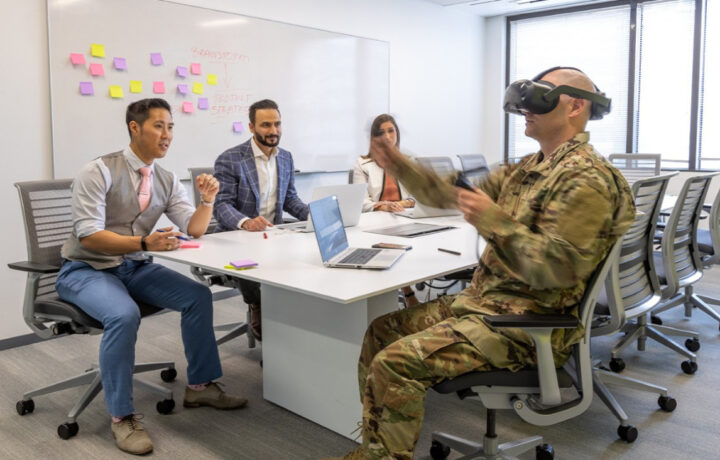Executive Advisor, Todd Burnett, knows a soldier’s life firsthand. He served in Operation Desert Storm, Iraq, and Afghanistan, playing a vital role in understanding and disarming improvised explosive devices (IED). He shaped the next generation of soldiers as a drill sergeant and as West Point’s command sergeant major. Today, he’s supporting the military community with the same type of wearable devices he and his family use in their daily lives: activity trackers, heart rate monitors, sleep monitors, and more.
It’s all part of human performance training at Booz Allen, which combines traditional strength and conditioning, advanced data science, and immersive simulations to optimize physical and psychological readiness, wellbeing, and performance.
“We’re analyzing the data, viewing our soldiers as tactical athletes, and recruiting coaches who have been in this field and who can help drive them in the right direction,” Todd says.
Setting New Soldiers Up for Success
Such data-driven coaching is good for both individuals and the armed forces. “When we’re able to graduate more people from basic training and increase our recruiting, we can get our force up to the numbers that it needs,” says Todd.
Once a soldier has completed basic training, two other elements of human performance training factor in: building operational skillsets and sharpening situational awareness.
Booz Allen enhances this training with augmented and virtual reality-enhanced simulations, virtual scenarios, and analytics-powered digital solutions to get soldiers ready for missions faster.
Human performance data also helps with the leadership aspects of operational readiness. For example, heart rate information can guide troop leaders to soldiers with lower stress levels and steadier nerves for combat assignments. Analysis of sleep levels and mental sharpness could be valuable in activities like route-clearing patrols, where soldiers scan an area for IEDs.
Finally, these vital insights into cognitive, physical, and mental health can be invaluable to soldiers after they leave the battlefield. Todd notes how Booz Allen’s human performance training team recently provided volunteer coaching to participants of the Department of Defense Warrior Games and international Invictus Games. Both events provide wounded, injured, and ill service personnel with an opportunity to compete in multiple sports.
Todd emphasizes that you don’t have to be an athlete to benefit from insight on sleep, nutrition, mobility, and overall wellbeing.
“The most important thing you have after you leave the military is your family,” says Todd. “So, what are you doing to be there for them and be present every day? I think wearables can help with that.”
Explore Careers at Booz Allen.
The world can’t wait.
SPONSORED CONTENT: This content is written on or behalf of our Sponsor.




